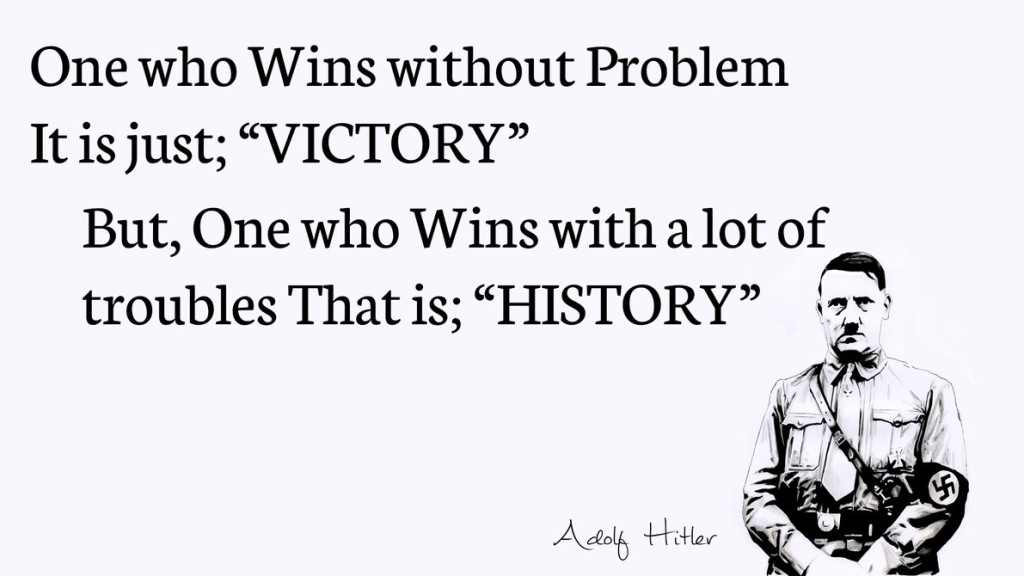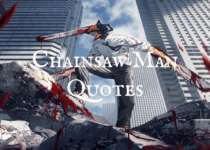All Quiet On The Western Front Quotes
All Quiet on the Western Front is a narrative by the main character, Paul Baümer. He is nineteen when he and his friends from school all join the German Army to fight during World War I. They join the army of their own accord due to being motivated by their teacher, Kantorek, who seduces them with passionate patriotic speeches.
Paul and his friends soon come to the realization that notions of patriotism preached by Kantorek are all useless stereotypical nonsense. This realization is evoked after they engage in harsh training for ten weeks under a rather ruthless corporal, and gain brutal experiences at the war front.
After going through unspeakable experiences on the front, eventually Paul and his friends meet their demise.
Below are 48 of the most interesting quotes from All Quiet on the Western Front:
I am young, I am twenty years old; yet I know nothing of life but despair, death, fear, and fatuous superficiality cast over an abyss of sorrow. I see how peoples are set against one another, and in silence, unknowingly, foolishly, obediently, innocently slay one another.
But now, for the first time, I see you are a man like me. I thought of your hand-grenades, of your bayonet, of your rifle; now I see your wife and your face and our fellowship. Forgive me, comrade. We always see it too late. Why do they never tell us that you are poor devils like us, that your mothers are just as anxious as ours, and that we have the same fear of death, and the same dying and the same agony–Forgive me, comrade; how could you be my enemy?
We are not youth any longer. We don’t want to take the world by storm. We are fleeing. We fly from ourselves. From our life. We were eighteen and had begun to love life and the world; and we had to shoot it to pieces.
It is very queer that the unhappiness of the world is so often brought on by small men.
We were all at once terribly alone; and alone we must see it through.
We are forlorn like children, and experienced like old men, we are crude and sorrowful and superficial—I believe we are lost.
This book is to be neither an accusation nor a confession, and least of all an adventure, for death is not an adventure to those who stand face to face with it. It will try simply to tell of a generation of men who, even though they may have escaped shells, were destroyed by the war.
How senseless is everything that can ever be written, done, or thought, when such things are possible. It must be all lies and of no account when the culture of a thousand years could not prevent this stream of blood being poured out, these torture-chambers in their hundreds of thousands. A hospital alone shows what war is.
He fell in October 1918, on a day that was so quiet and still on the whole front, that the army report confined itself to the single sentence: All quiet on the Western Front. He had fallen forward and lay on the earth as though sleeping. Turning him over one saw that he could not have suffered long; his face had an expression of calm, as though almost glad the end had come.
We have so much to say, and we shall never say it.
We are little flames poorly sheltered by frail walls against the storm of dissolution and madness, in which we flicker and sometimes almost go out…we creep in upon ourselves and with big eyes stare into the night…and thus we wait for morning.
We came to realise – first with astonishment, then bitterness, and finally with indifference – that intellect apparently wasn’t the most important thing…not ideas, but the system; not freedom, but drill. We had joined up with enthusiasm and with good will; but they did everything to knock that out of us.
Why do they never tell us that you are poor devils like us, that your mothers are just as anxious as ours, and that we have the same fear of death, and the same dying and the same agony—Forgive me, comrade; how could you be my enemy?
Bombardment, barrage, curtain-fire, mines, gas, tanks, machine-guns, hand-grenades – words, words, but they hold the horror of the world.
I want that quiet rapture again. I want to feel the same powerful, nameless urge that I used to feel when I turned to my books. The breath of desire that then arose from the coloured backs of the books, shall fill me again, melt the heavy, dead lump of lead that lies somewhere in me and waken again the impatience of the future, the quick joy in the world of thought, it shall bring back again the lost eagerness of my youth. I sit and wait.
We’re no longer young men. We’ve lost any desire to conquer the world. We are refugees. We are fleeing from ourselves. From our lives. We were eighteen years old, and we had just begun to love the world and to love being in it; but we had to shoot at it. The first shell to land went straight for our hearts. We’ve been cut off from real action, from getting on, from progress. We don’t believe in those things any more; we believe in the war.
At school nobody ever taught us how to light a cigarette in a storm of rain, nor how a fire could be made with wet wood-nor that it is best to stick a bayonet in the belly because there it doesn’t get jammed, as it does in the ribs.
A man cannot realize that above such shattered bodies there are still human faces in which life goes its daily round. And this is only one hospital, a single station; there are hundreds of thousands in Germany, hundreds of thousands in France, hundreds of thousands in Russia. How senseless is everything that can ever be written, done, or thought, when such things are possible. It must be all lies and of no account when the culture of a thousand years could not prevent this stream of blood being poured out, these torture chambers in their hundreds of thousands. A hospital alone shows what war is.
They are more to me than life, these voices, they are more than motherliness and more than fear; they are the strongest, most comforting thing there is anywhere: they are the voices of my comrades.
Our knowledge of life is limited to death.
To no man does the earth mean so much as to the soldier. When he presses himself down upon her long and powerfully, when he buries his face and his limbs deep in her from the fear of death by shell-fire, then she is his only friend, his brother, his mother; he stifles his terror and his cries in her silence and her security; she shelters him and releases him for ten seconds to live, to run, ten seconds of life; receives him again and again and often forever.
It’s all rot that they put in the war-news about the good humour of the troops, how they are arranging dances almost before they are out of the front-line. We don’t act like that because we are in a good humour: we are in a good humour because otherwise we should go to pieces.
You take it from me, we are losing the war because we can salute too well.
Kropp on the other hand is a thinker. He proposes that a declaration of war should be a kind of popular festival with entrance-tickets and bands, like a bull fight. Then in the arena the ministers and generals of the two countries, dressed in bathing-drawers and armed with clubs, can have it out on themselves. Whoever survives the country wins. That would be much simpler and more than just this arrangement, where the wrong people do the fighting.
It is too dangerous for me to put these things into words. I am afraid they might then become gigantic and I be no longer able to master them.


